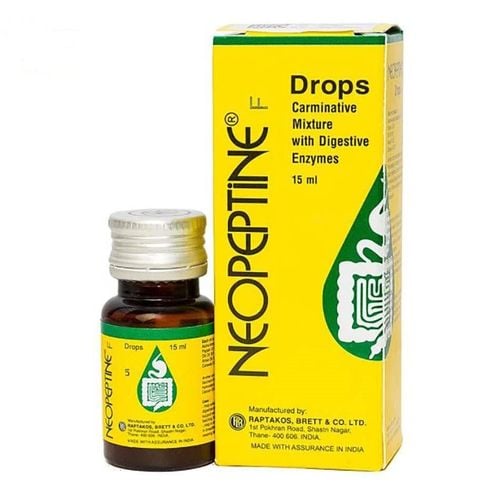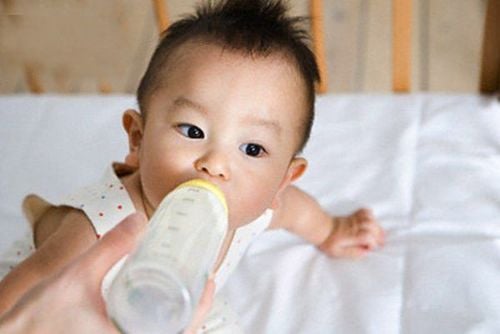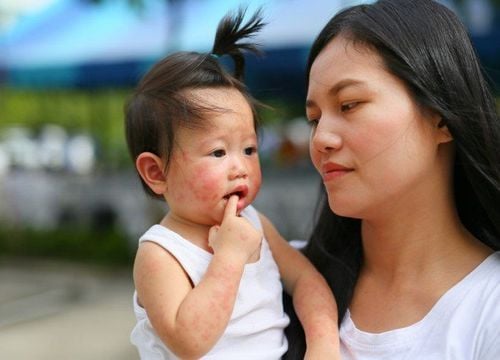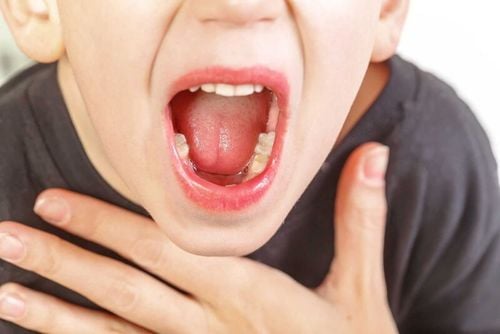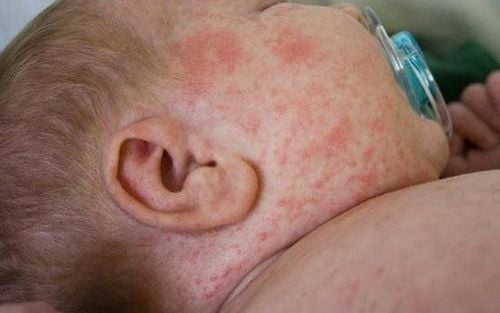This article was professionally reviewed by Dr. Nguyen Thai Ngoc Chau - Pediatric Neonatologist - Department of Pediatrics & Neonatology & Vinmec Phu Quoc International Hospital.
Up to 90% of children experience fever, fatigue, and reduced appetite, even refusing to breastfeed, after vaccination. When faced with this situation, parents provide care and ensure proper nutrition to stimulate the child's appetite.
1. Why do babies stop breastfeeding after vaccination?
The condition of children refusing to eat after vaccination usually only lasts for about 7-10 days. After this period, children can eat well again. However, in some cases, children may have prolonged loss of appetite, refuse to breastfeed, and become fussy, which can negatively impact their health and development.
According to experts, the reasons why children stop breastfeeding after vaccination may be due to:
- After vaccination, the child's immune system is tasked with recognizing, processing the vaccine, and producing antibodies to protect against disease. This increased workload can lead to fatigue, manifested as fever, lethargy, diarrhea, and loss of appetite. Children with weaker immune systems may experience more severe symptoms and be less inclined to eat.
- In addition, children refusing to breastfeed after vaccination can also be due to the fear of vaccination and being tired from crying too much. For adults, vaccination only feels like an ant bite. However, for young children, most children are afraid and cry when they see the injection needle. Some children may cry during the injection process because of the pain and even when they get home, the pain persists. Not to mention the fact that the injection site can also be swollen, causing the child to ache, cry constantly, leading to fatigue and further discouraging breastfeed.

2. Consequences of children not breastfeeding after vaccination
If the refusal to eat is not a chronic issue, it is usually temporary and resolves within 7–10 days. However, if the condition persists beyond this period, immediate intervention is necessary to prevent the following consequences:
- Children may experience rapid weight loss, pale skin, and fatigue due to insufficient nutrient intake.
- Post-vaccination poor appetite in children may become a long-term issue without a timely solution if the child continuously refuses to eat.
- The child may develop a negative association with eating and vaccination, making future feeding and vaccination experiences more challenging.
Note, if your child refuses to breastfeed after vaccination, has a fever, and cries a lot, you need to monitor closely and take your child to see a doctor immediately if the fever persists or the child continues to refuse food.

3. How to prevent loss of appetite in children after vaccination?
Providing care and proper nutrition before and after vaccination is crucial because it helps children stay healthy and respond well to vaccines. Accordingly, to prevent and address loss of appetite after vaccination, you should:
- Prepare easily digestible meals with soft, liquid-based foods like porridge or soup to make it easier for the child to eat and digest.
- Include a variety of foods, especially those the child enjoys, to stimulate appetite. Notably, you should increase the intake of vitamins and minerals (found in green vegetables, fruits, and tubers) in your child's daily menu to enhance absorption.
- Avoid force feeding by all means, because doing so can have the opposite effect, making children even more afraid of eating. Instead, you can give your child milk, and extra snacks such as cheese, yogurt, and smoothies... to make up for the missed nutrients that are lacking in main meals.
- Most children will feel tired after vaccination and eat very little or refuse to eat altogether. Therefore, you should divide their meals into smaller portions to ensure they still receive adequate nutrition after the vaccination. Otherwise, the child is likely to experience stagnant weight or weight loss.
- Additionally, you can add more probiotics and some micronutrients such as B vitamins, zinc, and lysine... for 1-2 weeks after vaccination to stimulate appetite in children.
In summary, loss of appetite in children after vaccination is common but typically temporary, resolving within 7–10 days. If it persists beyond this period, consult a doctor to prevent adverse effects on the child’s health.
Please dial HOTLINE for more information or register for an appointment HERE. Download MyVinmec app to make appointments faster and to manage your bookings easily.




